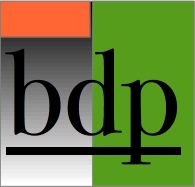In any movement, any scene, whether it’s music, film, or art, there is always one defining period — somewhere right after it starts to take off, but before it gets broad exposure, and gets absorbed into the vast, black hole of contemporary culture. It’s kind of like late youth or early middle age, when you’re smart enough to stop making the same mistakes over and over again, but still have the strength and energy to take on the world at full throttle. Because the industry is always pushing you toward that one make-or-break moment when either you become the Next Big Thing, or drop away into total obscurity.
The trick is, of course, is to postpone that moment indefinitely, so that you can make that defining period — the golden age of whatever movement you’re in– last as long as possible. And the Reducers, whether by accident or design, have perfected this to a science. The most exciting phase of the Reducers’ career started shortly after the band was formed, and doesn’t show any signs of ending anytime soon.
What you’ll hear at their live shows, and on much of their studio work, is a lush, bittersweet wall of sound — an SG and a Les Paul, both with single coil pickups, growling through old tube amps. Holding it all up is a tight, punchy rhythm section, athletic bass riffs skating back and forth over hard-hitting, clockwork-accurate drums. And riding on top, you’ve got snarling vocals, pent up small town rage exploding in searing harmonies, and dry, no-bullshit, devastating lyrics that hit just as hard today as they did 20 years ago. You know the Hoodoo Gurus? I love the Hoodoo Gurus! but, well, sorry. The Reducers are the real thing.
1978, early winter, the Northeast Corridor. You’re driving a 1968 Pontiac Catalina with a 400 cubic inch engine, but the speed limit is 55. You could easily get mugged walking the streets of any city on the route — New York, New Haven, New London, Boston, Connecticut — but you can smoke weed in a movie theater without anyone complaining. You know that there’s a new sound out there — the Sex Pistols, the Ramones, the Clash, the Jam! but somehow, you just can’t get at it. When you turn on the radio, all you hear is Boston or Fleetwood Mac.
Halfway between Boston and New York, you pull off the road in New London Connecticut, and make your way to a little dive called the El and Gee club. You go inside, and find yourself in a run-down old dance hall that hasn’t played a lot of live music since Prohibition. Guitarist PETER DETMOLD and his girlfriend, Martha, are working the door. Drummer TOM TROMBLEY’s van — which he never drives, because he’s legally blind– is parked outside, while Tom, still single at this point, silently nurses a beer at the bar. Guitarist HUGH BIRDSALL is on stage, tuning up a vintage Les Paul Junior with a stroboscopic tuner that looks like an oscilloscope out of my father’s closet. Bassist STEVE KAIKA offers you a wry smile as he unpacks his gear, and asks how you’re feeling tonight. You tell him you’re great!
Though the real answer is that you’re scared totally shitless! because you are in the opening act tonight. And you’re opening for these guys. The kind of guys who lend you their own equipment because your own gear is so lame. The guys who taught me more about rock and roll, and the entertainment industry, than just about anybody else I ever met.
I played the New England bar-band circuit for many years, and then went on to write for the local paper, The New London Day. I stuck around for a long time — probably longer than I should have — before I careened out of New London, like a cue ball hit way too hard in a drunken game of pool. But somehow, I left the table with just enough english to land a freelance gig writing for Columbia Tri-Star, and to get started writing sound tracks for industrials in New York. I moved to Hollywood, got lucky, sold a couple of screenplays, and bought a house in the Hollywood Hills with my wife. Still play a little rock and roll out here, too — some good shows, good crowds, good people. And after one of our better nights, I can even convince myself that not that much has changed.
Though I know it has. The industry out here is a much meaner, shittier place than the rock and roll neighborhood where I cut my teeth, and at 45, I feel like I’m ready to retire!
But the Reducers are still going strong. So, for just a minute, sit back in your chair, take a sip of your beer, and imagine that you’re in the Dutch tavern in New London, the dive where Eugene O’Neill often drank, and which Peter Detmold now owns. It’s an old whaling town, where many a long yarn has been spun, and you’re about to hear another one.
These are the Reducers. And this is their story.
– Matt Jansky


